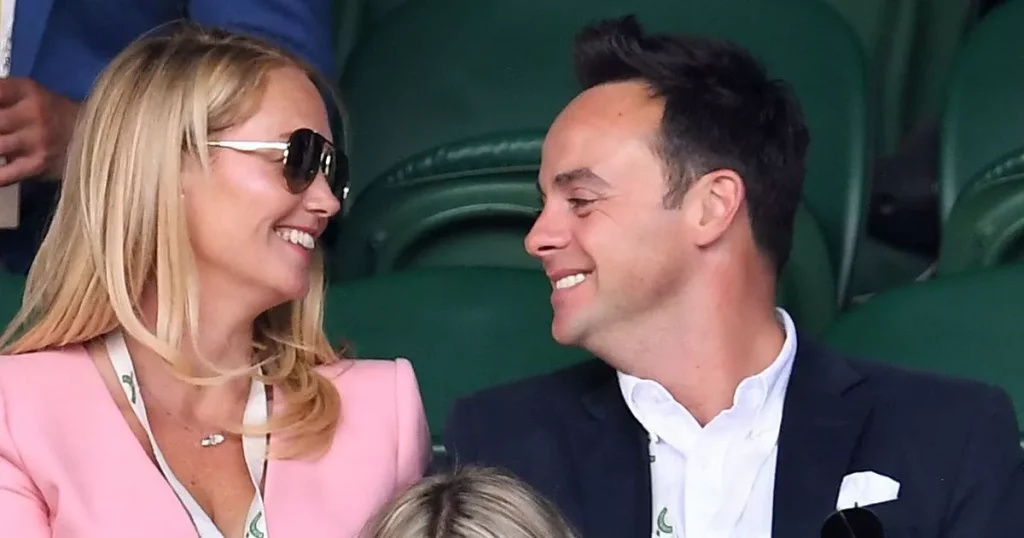Ant McPartlin, the host of Britain’s Got Talent, recently welcomed a baby boy named Wilder with his wife Anne Marie. He shared the news on Instagram, along with a photo of himself holding his son, showing off a family tree tattoo on his arm. Fans noticed that the name of their dog Hurley was missing from the tattoo, but Ant later revealed that Hurley’s name was there, just not visible in the photo due to the newborn. This clarification eased concerns among fans, and many congratulated him on the new addition to their family.
In another development, Ant’s ex-wife Lisa Armstrong is reportedly preparing to battle for custody of their beloved Labrador, Hurley. Ant and Lisa split in 2018, and he went on to marry Anne Marie in 2021. Lisa’s attachment to Hurley is significant, especially after remaining childless during her marriage to Ant. Despite their divorce battle, Ant has reportedly refused to give full custody of the dog to Lisa. The situation has intensified after the arrival of Wilder, as Lisa feels betrayed by the lack of sensitivity in Ant’s announcement. The dog has been a constant source of support for her, and she is determined to keep him.
The custody battle over Hurley highlights the emotional complexity of relationships that involve pets, especially in the aftermath of a high-profile divorce. Pets are often considered as family members, and their welfare can become a contentious issue in separations. The legal status of pets in such cases can vary, with some jurisdictions treating them as property to be divided, while others recognize the emotional bond between pets and their owners. In this case, the conflict over Hurley reflects the deeply personal nature of pet ownership and the challenges it can pose in navigating post-divorce arrangements.
The story of Ant, Lisa, Anne Marie, and Hurley underscores the importance of understanding the emotional impact of pet custody disputes. Pets can provide comfort, companionship, and stability in challenging times, and losing them can be devastating. Legal frameworks for pet custody often lag behind the complexity of human-animal relationships, leading to protracted conflicts and emotional distress for all involved. As attitudes towards pets continue to evolve, there is a growing recognition of the need for more compassionate and nuanced approaches to pet custody, taking into account the well-being of both the animals and their human caregivers.
The case of Hurley also raises questions about the role of communication and empathy in managing pet custody disputes. Open and honest dialogue between all parties involved can help reduce misunderstandings and conflicts, leading to more amicable resolutions. Recognizing the unique emotional bonds that exist between pets and their owners can guide decisions about custody arrangements, prioritizing the welfare of the animals while addressing the concerns of their human caregivers. As society grapples with the complexities of modern relationships, including those involving pets, a compassionate and understanding approach is essential to navigating these challenges with sensitivity and respect.
In conclusion, Ant McPartlin’s journey with his new baby, Wilder, and the custody battle over Hurley with his ex-wife, Lisa Armstrong, highlight the emotional complexities of pet ownership in the context of high-profile relationships and divorces. The story underscores the deep bonds that can exist between humans and their pets, as well as the challenges and conflicts that can arise when these relationships are disrupted. By exploring the legal, emotional, and communication aspects of pet custody disputes, we gain insights into the complexities of modern relationships and the need for compassionate and empathetic solutions in navigating such challenging situations.


